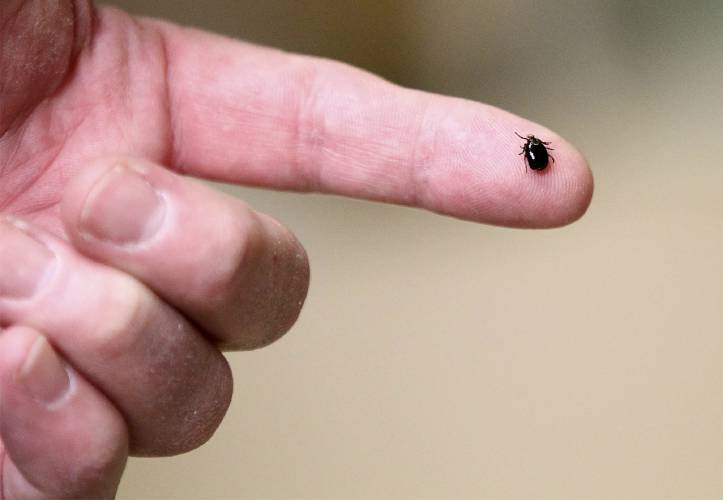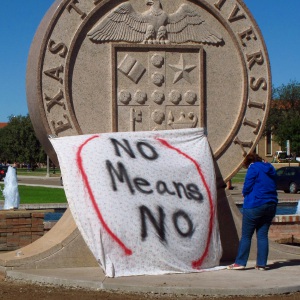Opinion: Climate change and children

FILE - In this March 24, 2017 photo, a tick is displayed in Plainville, Mass. Paul Connors / The Sun Chronicle via AP
| Published: 10-22-2024 6:00 AM |
Dr. Patricia Edwards is a pediatrician and member of Healthy Climate New Hampshire, a coalition of health professionals concerned with climate change.
I grew up in New Hampshire and remember when you knew that it was Memorial Day because the lilacs were just blooming. Then, for maybe two weeks in July and a few days in August, the temperature got into the 90s. In the winter the temperature fell below zero with many, many feet of snow.
Now our weather is drastically different. The lilacs are done flowering and starting to turn brown by Memorial Day and temperatures in the 90s seem to last all summer. The snow was nonexistent last winter and some flowers were coming up in early March. These changes over the last couple of decades have complicated the practice of medicine.
First of all, warmer winters and wetter weather, along with increased carbon dioxide from burning coal, oil and gas, have fueled flowering trees and bushes; the trees even seem taller and fuller. That is leading to dramatically more pollen and that leads to more allergies that are becoming harder to treat. The pollen also increases asthma symptoms among many children I see in my Concord practice.
The heat has also affected the environment by leading to more forest fires and declining air quality. Again, more issues with asthma for our children. The warming of our lakes and ponds is leading to increased bacterial contamination. Many of our lakes have been restricted this year due to increased cyanobacteria which can lead to rashes and illness for swimmers and sometimes death for pets. E.coli bacteria is also increasing in overheated lakes and ponds and can lead to diarrhea, vomiting and dehydration which can be very serious in babies and toddlers.
These are all the things I now talk with parents and children about which I did not need to touch on in the past.
I have also seen more heat-related illnesses in teens who are exercising in the extreme summer heat. One of my patients had to be hospitalized for a few days with near heat stroke and another school-age child spent a few hours being rehydrated in the emergency department for heat exhaustion. Heat has also had an effect on insect life in ways that affect our health and the health of our children. Tics have increased with every passing year. When I was a child and we had those cold winters I mentioned, the ticks would die off from frost and snow; there were no issues with tick-borne diseases. Now Lyme disease caused by ticks is rampant and New Hampshire has the third fastest increase in reported cases in the country.
Lyme can be serious and debilitating, but we are also seeing an even worse tick-borne illness, babesiosis, with cases increasing a staggering 372 percent in the state since 2011. Babesiosis is a blood parasite that can cause fever, fatigue and hemolytic anemia and sometimes last for months. Two other bacterial illnesses we now have to look for are anaplasmosis and ehrlichiosis, again, courtesy of a bite from the deer tick.
Article continues after...
Yesterday's Most Read Articles
 ‘Bittersweet’: The Post on Main Street closes Friday
‘Bittersweet’: The Post on Main Street closes Friday
 Messy parking around Concord’s bus terminal won’t get less messy any time soon
Messy parking around Concord’s bus terminal won’t get less messy any time soon
 Jesse Sullivan pleads guilty to second-degree murder of half-brother, Zackary
Jesse Sullivan pleads guilty to second-degree murder of half-brother, Zackary
 In echo of 2014 struggle, Market Basket board sidelines ‘Artie T.’ from CEO spot
In echo of 2014 struggle, Market Basket board sidelines ‘Artie T.’ from CEO spot
 Historic former Boscawen library building on sale – again
Historic former Boscawen library building on sale – again
 New Concord apartments open in former First Congregational Church
New Concord apartments open in former First Congregational Church
Finally, the wet hot weather is driving up our mosquito population and with that, tragically as we have seen this year, more illness and even death from diseases like Eastern Equine Encephalitis and West Nile disease.
The doctors and nurses I know are deeply concerned with what is happening to our climate, and to our health. But we aren’t the only ones. One other way the climate affects the health of our children is financial. Ski areas are hard hit by lack of snow, ice fishing and skating by an absence of ice, farmers are fighting the effects of heat and too much rain, and beekeepers are alarmed by new invasive insects damaging their hives. All of this puts stress on families and for many, it puts them at economic risk. And all of this is related to our changing climate
Pediatricians deal with these issues every day in our practices. It is impossible for us not to notice the effects of climate change. Our job is to protect the health of children and that gives us an obligation to call attention to what is happening to the climate, and to demand we act.







 Opinion: How dark can it get?
Opinion: How dark can it get? Opinion: Unfair taxes, unfair schools: The New Hampshire way
Opinion: Unfair taxes, unfair schools: The New Hampshire way Opinion: In the fight to stop sexual violence, can polio hold the solutions?
Opinion: In the fight to stop sexual violence, can polio hold the solutions? Opinion: Where are the permanent solutions for a more stable budget?
Opinion: Where are the permanent solutions for a more stable budget?
